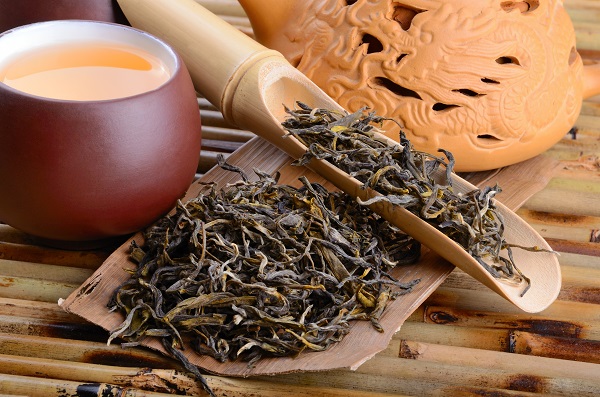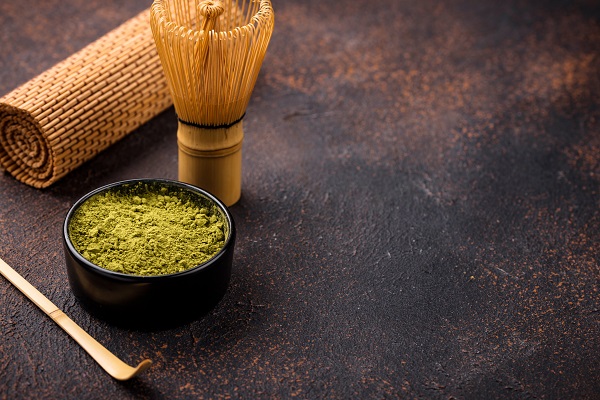Tea, a beverage that has spanned centuries, cultures, and continents, brings together both connoisseurs and casual drinkers under its aromatic allure. From the misty mountains of China to the bustling tea shops in London, this drink has woven its way into the fabric of society, offering not only comfort and taste but a plethora of health benefits. Its diversity is vast, with each variant offering unique flavors and health advantages. This exploration delves deep into some of these teas, casting a spotlight on their origins and the benefits of different brews they confer upon regular drinkers.
Contents
Green Tea
Green tea, revered for its pale hue and delicate taste, originates predominantly from China and Japan. The leaves undergo minimal oxidation, preserving many of their beneficial compounds. Chief among these compounds are catechins and EGCG, which have been lauded for their potential health benefits. Research has linked green tea consumption to a myriad of benefits such as weight management, improved heart health, and an impressive antioxidant profile that combats free radicals.
Yet, the global appeal of green tea doesn’t just rest in its health attributes. It has carved a niche in popular culture, from ceremonies to contemporary beverages like green tea lattes. The balance of taste and health ensures that this tea remains a staple in many households and cafes.
Ginger Tea
The spicy and invigorating taste of ginger tea, stemming from the ginger root, can be traced back to ancient civilizations, notably China and India. Revered in traditional medicine, ginger was often prescribed to cure ailments from digestive troubles to colds. The world has since caught on, with many now reaching for a cup when in need of a warming, comforting brew.
Ginger tea’s health accolades are not only confined to folklore; modern science too, sings its praises. Known for its impressive digestive benefits, a cup of ginger tea can offer relief from upset stomachs and nausea. Moreover, its potential anti-inflammatory properties make it a sought-after remedy for joint pains and muscle aches. This combination of taste and health ensures ginger tea’s esteemed place in many kitchen pantries.
Peppermint Tea
A brew that refreshes and revitalizes, peppermint tea offers a cool, minty zing that’s unmatched. Derived from the peppermint plant, this tea has been utilized for centuries, from ancient Egyptian rituals to modern-day herbal medicine. Its crisp aroma and invigorating taste make it a popular choice, especially post-meal or during a cold winter evening.
But peppermint tea is more than just a flavorful indulgence. Many turn to it for its digestive benefits, as it can offer relief from bloating and indigestion. Moreover, the menthol present in peppermint acts as a natural remedy for respiratory ailments, providing a soothing sensation. With such multifaceted health benefits, it’s no wonder that peppermint tea remains a household staple.
Chamomile Tea
Chamomile, with its daisy-like flowers, provides a gentle, aromatic infusion cherished by many for its calming properties. It’s been a cornerstone in traditional medicine, especially within ancient Egyptian and Greek cultures. Today, it remains a go-to remedy for those seeking solace from the hustle and bustle of modern life.
Beyond its tranquilizing effects, chamomile tea shines in the realm of health. Numerous studies have praised its potential anti-inflammatory properties and benefits for sleep. In fact, countless individuals swear by a cup of chamomile before bed, believing in its power to usher in a peaceful night’s slumber. Its subtle floral taste combined with these health benefits ensures chamomile’s position as a beloved nighttime brew.
Black Tea
Originating from the Camellia sinensis plant, black tea undergoes full oxidation, giving it its deep color and robust flavor. It’s the most widely consumed tea globally, with variations from the strong Assam tea of India to the smoky Lapsang Souchong of China. Many rituals, like the British afternoon tea, revolve around this beloved brew, showcasing its cultural significance.
The appeal of black tea isn’t solely based on its rich taste. From a health standpoint, it offers a bevy of benefits. Studies indicate that regular consumption might be linked to improved heart health and a reduction in cholesterol levels. The presence of flavonoids in black tea also means that it carries antioxidant properties, furthering its case as a drink that combines pleasure with wellness.
Oolong Tea
Balancing between the characteristics of black and green teas, oolong tea is semi-oxidized and boasts a flavor profile that can range from floral and sweet to woody and thick. With roots deeply embedded in Chinese tea traditions, oolong has been celebrated for its rich taste and aromatic qualities, making it a favorite for many tea enthusiasts.
In terms of health benefits, oolong tea doesn’t fall short. It’s been linked to aiding weight management by potentially boosting metabolism. Additionally, some studies suggest that oolong might improve heart health and even contribute to better brain function. Such potential benefits, paired with its unique and varied flavor spectrum, grant oolong a special spot in the world of teas.
Matcha Tea
Matcha tea, with its vivid green hue and distinct taste, hails primarily from Japan, where it’s an integral part of tea ceremonies. Unlike other teas, matcha involves the consumption of ground tea leaves, leading to a more concentrated intake of its beneficial compounds. Its rich texture and slightly sweet, grassy notes have led to its rise in popularity, finding its way into smoothies, desserts, and lattes around the world.
The health benefits matcha offers are profound. Its concentration means that it packs a punch in terms of antioxidants, notably catechins, which are believed to combat cell damage. Furthermore, matcha provides a balanced energy boost, thanks to the combination of caffeine and L-theanine, an amino acid that promotes relaxation without drowsiness. Such benefits, combined with its unique flavor, make matcha a modern-day favorite.
The Bottom Line
In its various forms, tea offers a rich tapestry of flavors, aromas, and health benefits of different brews. From the delicate nuances of green tea to the bold undertones of black, every brew tells a story, steeped in history and culture. As science delves deeper into the myriad of health advantages each variant offers, it becomes evident that tea is more than just a beverage; it’s a fusion of tradition, taste, and wellness. Enjoying a cup not only soothes the soul but also contributes to a journey of well-being and discovery.









